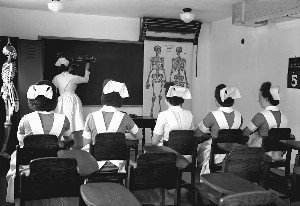Michael Wilding
William Lane's The Workingmen s Paradise: Pioneering Socialist Realism
Introduction
William lane's the workingmen s paradise: pioneering socialist realism. Explore William Lane's "The Workingmen's Paradise" (1892), a pioneering work of socialist realism. Discover its connection to the 1891 shearers' and 1890 maritime strikes in Queensland.
Abstract
For their part in the I 891 shearers' strike, some eighty to one hundred unionists were convicted in Queensland with sentences ranging from three months for 'intimidation' to three years for 'conspiracy'.' It was to aid the families of the gaoled unionists that William Lane wrote The Workingman s Paradise (1892).2 'lbe first part is laid during the summer of I 888-89 and covers two days; the second part at the commencement of the Queensland bush excitement in 1891, covering a somewhat shorter time.' (iii) The materials of the shearers' strike and the maritime strike that preceded it in I 890 are not, then, the explicit materials of Lane's novel. But these political confrontations are the off-stage reference of the novel's main characters. They are a major unwritten, but present, component of the novel. The second chapter of part II alludes both to the defeat of the maritime strike and the beginnings of the shearers' strike, forthcoming in the novel's time, already defeated in the reader's time. Those voices preaching moderation in the maritime strike, are introduced into the discussion only to be discounted. The unionists who went round 'talking law and order to the chaps on strike and rounding on every man who even boo'd as though he were a blackleg' (144) have realized the way they were co-opted and used by the 'authorities.'
Review
This paper presents an intriguing analysis of William Lane's *The Workingman's Paradise*, positioning it as a foundational text for "pioneering socialist realism." The abstract effectively contextualizes the novel within the turbulent socio-political landscape of late 19th-century Queensland, specifically citing the 1891 shearers' strike and the preceding 1890 maritime strike as the crucial, albeit "unwritten but present," backdrops for Lane's narrative. By highlighting the novel's origins as a response to the jailing of unionists and its nuanced engagement with the political confrontations of the era, the paper promises to illuminate how historical events shaped early Australian literary output and critical perspectives on labor movements. The abstract clearly establishes the political stakes, noting how the novel critiques voices of moderation and exposes the co-option of unionists by authorities. A significant strength of this proposed article lies in its historical grounding and the assertion that *The Workingman's Paradise* offers an early, perhaps nascent, form of socialist realism. The abstract's detailed description of the novel's timeline relative to the strikes, and its internal allusions to these events, effectively demonstrates the novel's deep embeddedness in contemporary political realities. The focus on the novel's discounting of moderate voices and its portrayal of unionists' disillusionment suggests a potent, ideologically charged narrative that actively engaged with the struggles of its time. This perspective promises to enrich our understanding of Australian literary history, showing how literature directly intervened in social discourse and contributed to the radicalization of political thought, making a strong case for the novel's historical and thematic significance. While the abstract provides an excellent foundation regarding the historical context and thematic concerns of *The Workingman's Paradise*, a crucial area for the full article to develop will be the explicit theoretical underpinning of "pioneering socialist realism." The abstract details *what* the novel addresses and *why* it was written, but less on *how* its literary style, narrative structure, or character portrayal concretely exemplify "socialist realism," particularly in a "pioneering" sense. Future reviewers will be keen to see the article define its understanding of this term, differentiate it from later, more formalized Soviet interpretations, and present compelling textual evidence to demonstrate Lane's innovative application of realist techniques for socialist ends. Elucidating these analytical connections will solidify the paper's central argument and its contribution to literary theory.
Full Text
You need to be logged in to view the full text and Download file of this article - William Lane's The Workingmen s Paradise: Pioneering Socialist Realism from Sydney Studies in Society and Culture .
Login to View Full Text And DownloadComments
You need to be logged in to post a comment.
Top Blogs by Rating
Your Digital Shadow: What Stat...
By Sciaria
The Invisible Load: Unveiling...
By Sciaria
Genetic Dark Matter: The Unsee...
By Sciaria
Favorite Blog
The Ageless Enigma: What Biolo...
By Sciaria
The Immortal Jellyfish: Unlock...
By Sciaria
The Data Diet: What Big Data *...
By Sciaria





